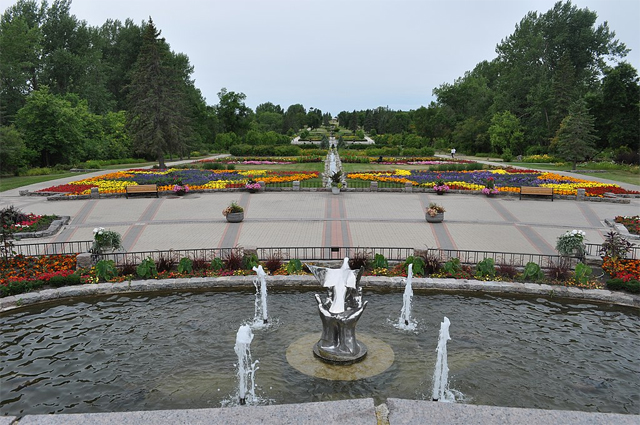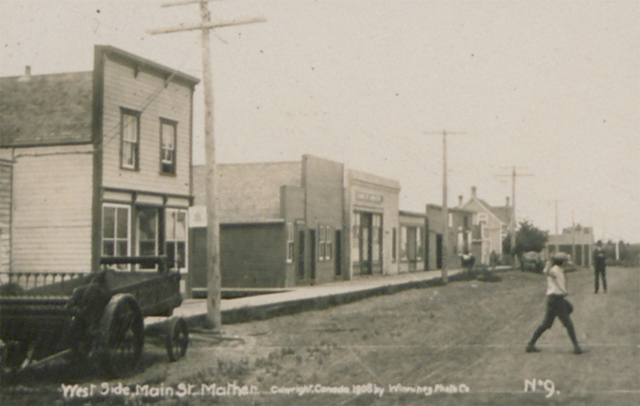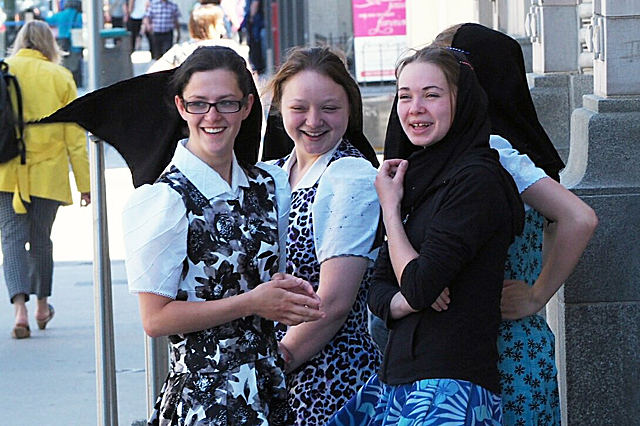About 140 miles southwest of Winnipeg on the border of Manitoba with North Dakota, the International Peace Garden beckons travelers to stop and contemplate the meaning of peace. The ambience of formal flower beds, fountains, some towers, and the international border between the two nations running straight through the middle of the garden effectively symbolize our natural desires for peaceful coexistence.

As the Wikipedia article on the garden points out, North Dakota has adopted as its motto the “Peace Garden State.” An article in the CBC on April 11 didn’t discuss the garden but it did reflect on the peaceful approaches of a couple Manitoba communities in the vicinity of the garden complex and the way they resolved a potentially contentious issue.
The Willow Creek Hutterite Colony, located 27 miles east of the garden and just north of the border, has grown beyond the bounds of their lands and facilities. As colonies usually do when they become too large, the Hutterites are looking for ways to subdivide. But Willow Creek came up with a novel proposal. Instead of finding a large tract of prairie, buying it, and building all the facilities that half of their members could then move into, why not buy a nearby, intact, but shrinking village?
Mather, Manitoba, is 13 miles farther from the peace garden and is just such a dying community. Rumors started circulating in Mather that Willow Creek was interested in making an offer, so representatives of the Hutterites held a meeting one Monday evening. Over 40 people, the majority of the citizens of Mather, showed up to hear what the Hutterites were proposing.

Willow Creek was proposing to buy the entire town of Mather—buildings, yards, streets, the entire community and all of its infrastructure. They were offering 1.5 times the assessed values of the properties. According to a lawyer representing the colony, John Stewart, the Hutterites were willing to negotiate beyond that. The CBC reporter quoted Bob Yake, owner of an auto shop business in Mather, as saying that at least some of the town residents were confused.
Mr. Stewart told the CBC that most of the residents of Mather were not interested in selling. And, he added, that was the purpose of the meeting—to give everyone an opportunity to hear the Hutterite proposal and to react to it together. He displayed an easy acceptance of the feelings of the Mather community.
Mr. Yake said that there were a lot of concerns about the offer—where would the people move to and would the sale of their properties provide enough money so they could find a new place to live? He indicated to the CBC that for most of the Mather people, it was enough that seven or eight of their fellow citizens simply couldn’t make it work for the rest to turn against the idea.

So Willow Creek has abandoned its proposal, sensible as it must have seemed to them. Attorney Stewart said that the colony does not at the moment have a Plan B prepared, but they will begin making plans for another sort of future. Mr. Yake said he thinks things in Mather are also “getting back to kind of normal.”
Is the kind of normal that Mr. Yake speaks about usually characterized by open discussions and peaceful resolutions of contentious issues such as happened in Mather a couple weeks ago? Or is that peacefulness the result of ingrained approaches to resolving conflicts held by the Hutterites and their local prairie neighbors? Or is it a halo effect fostered by the International Peace Garden a few miles away across the Manitoba prairie?